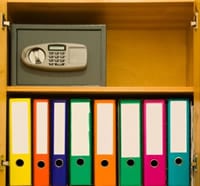 Hurray! Tax season is over (unless you filed an extension).
Hurray! Tax season is over (unless you filed an extension).
The next step is to get rid of clutter – time to clean out your financial records.
Here’s what you can get rid of:
Paystubs – Do you have a stack of them? You can get rid of last year’s because you have a W-2 that summarizes what you’ve earned. Keep the W-2.
Bank Statements – If your bank gives you an annual summary or statement, then you can get rid of all the monthly or quarterly statements.
Tax Returns – Generally, you can get rid of tax returns that are seven years old or more (2003 and older) along with the supporting documentation. However, you will want to check with your tax preparer if you:
- bought, sold and/or own a home
- hold certain investments
- received certain gifts
- have any other special circumstance that requires you to keep related paperwork indefinitely.
In other words, check with your tax preparer before throwing away your returns.
An alternative to paper files
Keeping your records on your computer is a great alternative to paper files. We had a lot of paper clutter hanging around, so I started the process of scanning my records as pdfs. If you need a piece of documentation, it’s much easier to locate and open a single pdf than it is to search through a big, cluttered file full of paper. The best part is, that you don’t have to refile the pdf after you’re done looking at it. It’s also easier to fax or email a pdf if needed. Think of all the times you’ve needed to share information about insurances, taxes or rebates. Computer files are great to work with.
Make sure to shred
Remember when I say “get rid of”, I mean for you to shred each and every document that has your personal information on it before throwing it away. You don’t want to offer dumpster divers an opportunity to steal your identity.
Call your tax preparer to see what you need to keep, and start to go through your paperwork to eliminate what you don’t need. Happy Shredding!
Leave a Reply